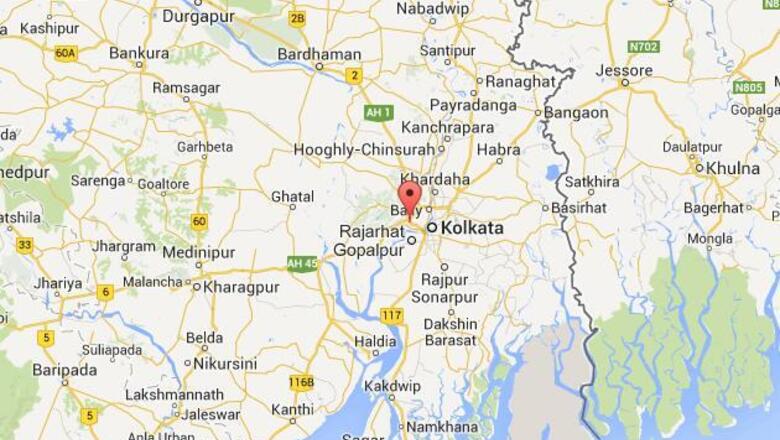
views
A dusty, cratered, Grand Trunk Road separates Northbrook jute mill and a shiny, apartment complex towering over the asphalt in Hooghly. Rows of flats stand on what used to be the staff quarters till they were sold four years ago for real estate. Now, 25 mill officials and their families live alongside 100 odd residents in a huge complex sprawling across three acres.
####
Behind the western walls of the mill are the workers’ colonies, where close to 5000 workers live with their families. “They live in shiny apartments but make us live in this filth. We don’t get power even though they deduct money from our salary.” Hemant Paswan says. A crowd slowly gathers around with women stepping out of their homes to join the din. “You should go to our toilets. They are filthy, water supply is erratic. Everyone is talking about what happened but no one wants to hear us,” Ajay Paswan chimed in from behind trying to muscle his way in.

It was a Tuesday afternoon yet all the men were in their quarters, bleary eyed after having stayed up all night fearing police raids. The women and children had come back from a blockade in front of a police station led by a local BJP leader demanding release of those who were arrested.
Last Sunday, at around 11 am, it was time for a change in shifts with hundreds of workers coming in and out of the mill. Suddenly the word was out that the management wants to close the mill. Within minutes a huge mob of workers rushed to the place where the mill CEO, general manager and other officials were holding meetings with worker representatives to negotiate an arrangement to reduce work days from 5 to 3, with a five hour shift. Tempers were running high when 60-year-old HK Maheshwari stepped out of the meeting to reason with the workers. Suddenly a blow came from nowhere and within minutes Maheshwari was pinned to the ground and beaten up with iron rods and stones. He died on the way to the hospital. It was the sixth major attack on a jute mill executive since 2001.
“If you exploit workers then the workers will hit back. We don’t care about politics but if you reduce pay and hours of work how will we survive,” says Seemant Paswan. For hundreds of migrant workers who had come to Bengal to work in the mills, the uncertainty of jobs and wages have led to anger. After the incident at Northbrook, there were lockdowns reported in five jute mills, forcing close to 3000 workers out of their jobs. The mill executives who work and live close to the workers are scared of any conflagration.

The crisis in jute mills of Bengal have precipitated this year with less demand and more production of jute goods. The industry survives on government protection and orders especially in sugar and foodgrain market but last year the government allegedly overestimated the demand for sacks and placed an inflated order. “This was happening in the last five months. Most mills were running in less shifts and less hours. The godowns are filled up with goods because the government has failed to lift the order.” Sanjay Kajaria, the former chairman of Indian Jute Association says.
To add to that, the industry has suffered a loss of approximately 600 million rupees after exports were hit in countries like Egypt, Syria,Turkey and Thailand because of political unrest. Mill owners allege that goods from Bangladesh which gives a subsidy of 7.5 per cent on jute exports, are infiltrating their protected domestic market and inspite of being the world’s leading exporter of jute goods with a 70 per cent market share, India is slowly losing out because of outdated machinery and lack of modernisation. Competition from plastic and synthetic products has also hit the industry hard. “There is no seriousness in the government towards jute. It is a political subject. Everytime there is a hue and cry, everybody comes on the tv and media, gives big statements but nobody come to give real support to the jute sector,” Kajaria says.

There are 62 jute mills in Bengal, the highest in the country yet their very survival is at stake with conflicting issues giving rise to militant trade unionism and fear psychosis. On Monday, all jute owners will meet the State Labor Minister Purnendu Bose to talk about the current crisis but with the ruling party blaming the left and the BJP for the violence, according to the industry insiders a long term solution with all stakeholders including the central government is absolutely expedient and necessary before time runs out for one of India’s oldest industry.




















Comments
0 comment